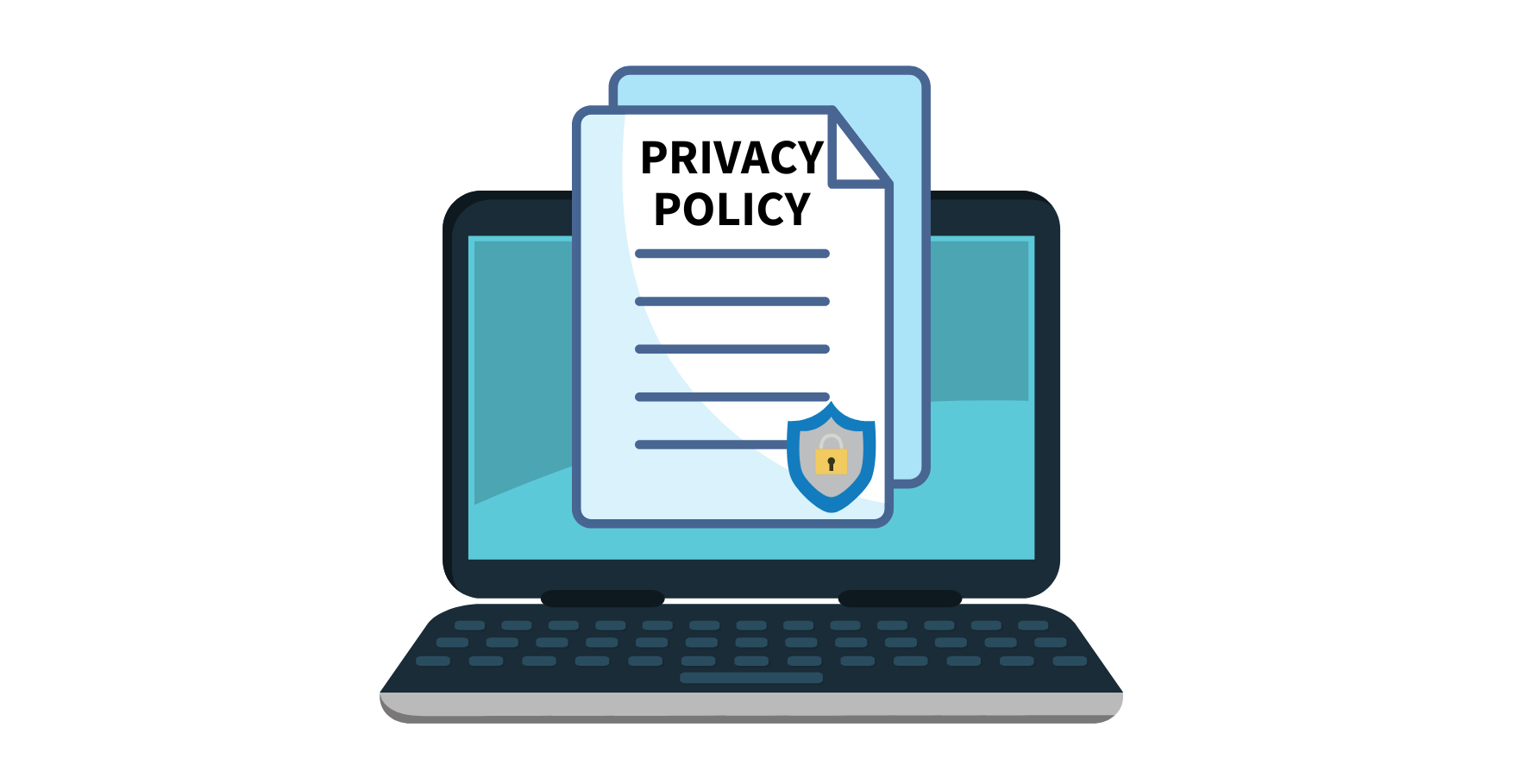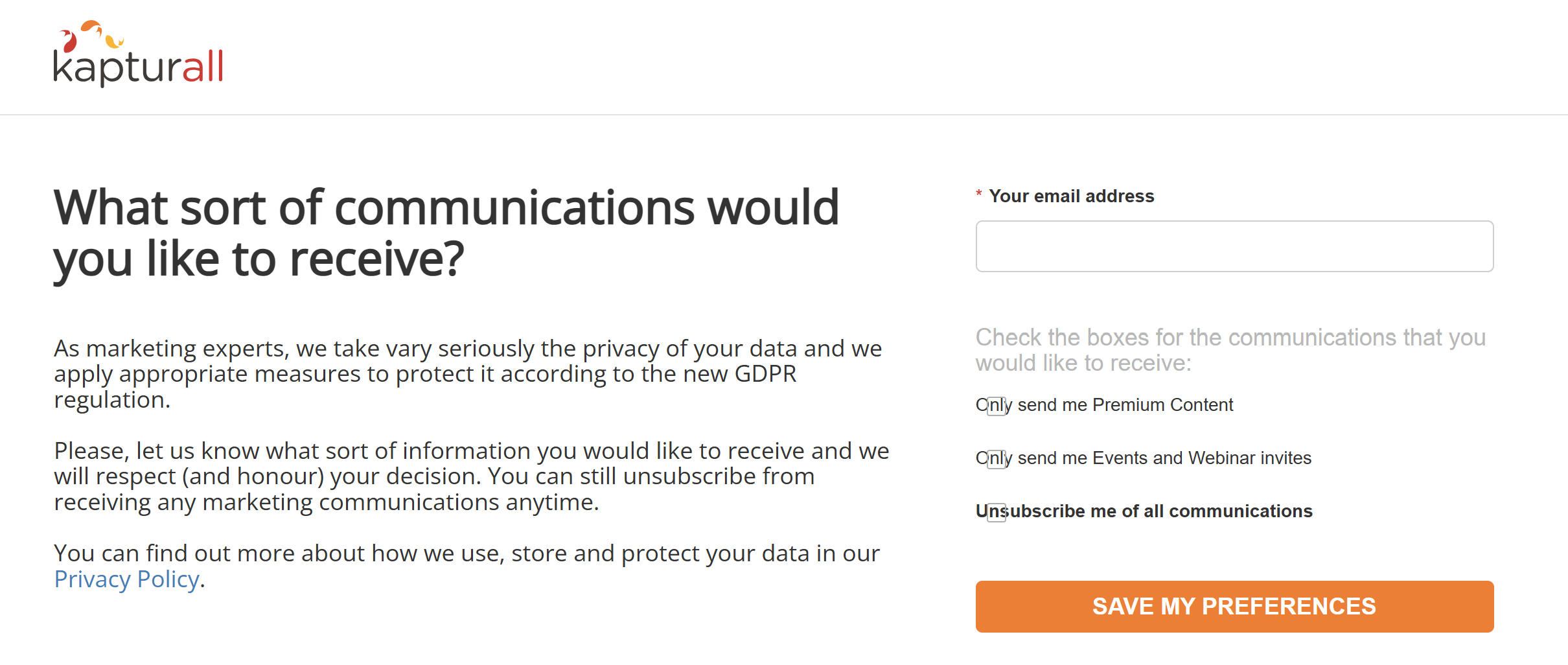How Marketo simplifies data privacy policy compliance for marketers
Overview
Throughout this article, we’ll explore how privacy policies not only meet global regulations but also serve as a competitive advantage. We’ll discuss the challenges of ensuring privacy in email marketing and how tools like Marketo, a Marketing Automation platform, simplify policy compliance and management.
- 1. Data Privacy: More Than a Legal Requirement
- 2. Privacy Regulations Shaping Digital Marketing
- 3. Privacy Policies and Marketing Automation
- 4. Opt-in, Double Opt-in, and Opt-out in Marketing Automation
- 5. Timestamping and Consent Records with Marketo
- 6. Ethical Segmentation and Marketo’s Preference Center
- 7. Conclusion
First, let’s clarify: what is a data privacy policy? A data privacy policy is a clear and concise document explaining how an organization collects, uses, stores, and protects personal information. Its main goal is to help users understand what data is collected, why it’s collected, and how it’s safeguarded, giving them control over their personal information. Key elements typically included in a privacy policy are: A strong privacy policy builds trust by ensuring transparency and complying with data protection laws. At Kapturall, we see it not just as an obligation but as a fundamental duty. Before diving into how privacy policies intersect with Marketing Automation tools, let’s review key regulations that have reshaped digital marketing. The GDPR (General Data Protection Regulation) in the European Union was a game-changer, introducing concepts like “explicit consent,” “the right to be forgotten,” and “data portability.” Its reach extends beyond Europe, affecting any business handling EU citizens’ data. Similar laws, such as California’s CCPA and Brazil’s LGPD, followed suit, addressing regional needs while sharing the goal of empowering users and ensuring data transparency. These regulations have transformed the marketing landscape. For instance, GDPR requires: While compliance requires effort, it also offers companies the chance to differentiate themselves by adopting ethical practices. Brands that prioritize these standards enhance their reputation and build trust in an increasingly discerning market. In this evolving digital landscape, Marketing Automation platforms are pivotal. They streamline data collection, enable personalized interactions, and support large-scale campaign segmentation. However, managing large amounts of sensitive data comes with challenges. Practices must align with data protection laws, and automated actions must respect user rights. At Kapturall, we’ve seen how Marketo supports marketing teams by addressing key needs: In Marketing Automation, opt-in, double opt-in, and opt-out are essential practices to ensure consent and meet data protection laws. Tools like Marketo make it easy to automate these processes, improving user experience and ensuring compliance. Opt-in: The Starting Point Opt-in requires users to actively consent to data processing. Marketo simplifies this with forms that capture and log consent directly in the database. Key regulations: Double Opt-in: Added Assurance Double opt-in adds an extra layer of validation. Marketo automates this by sending confirmation emails to users. Once confirmed, the system records a timestamp of when and how consent was given. Why it matters: Opt-out: The Right to Say No Opt-out allows users to revoke consent anytime. Marketo automates this through email links that instantly update user preferences in its database. Applicable regulations: Marketo records every consent with a timestamp, logging the date, time, and source of agreement. Benefits: Advanced segmentation is vital for creating tailored, effective campaigns. However, this must be balanced with respect for user privacy. Marketo’s Preference Center is a valuable tool for managing communications ethically. Benefits: Want to learn more? Check out our article on setting up a Preference Center in Marketo for step-by-step guidance. Data privacy isn’t just a legal necessity—it’s a chance to build trust and strengthen your brand. Tools like Marketo offer practical solutions to handle data ethically, from recording consent to segmenting campaigns based on user preferences. In today’s demanding digital world, investing in privacy practices protects businesses from penalties and fosters customer loyalty. By embracing transparency and ethical practices, brands not only comply with regulations but also lead the way in creating a safer, more respectful digital space. Data Privacy: More Than a Legal Requirement
Privacy Regulations Shaping Digital Marketing
Privacy Policies and Marketing Automation
Opt-in, Double Opt-in, and Opt-out in Marketing Automation
Timestamping and Consent Records with Marketo
Ethical Segmentation and Marketo’s Preference Center
Conclusion
SIGN UP FOR OUR NEWSLETTER
Eduardo Baquedano
Senior Marketing Consultant in Kapturall
Eduardo kicked off his career in sustainable mobility at SEAT before pivoting to become a marketing automation consultant, earning X2 Marketo Certification along the way. He now heads Marketing at Kapturall, where he's broadened his expertise in Marketing and Sales. Beyond work, his passion for climbing mirrors his love for challenges, showcasing his relentless pursuit of personal and professional growth.







